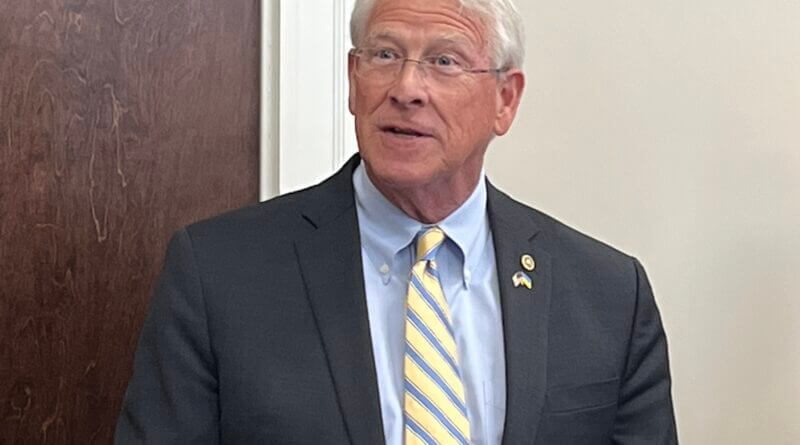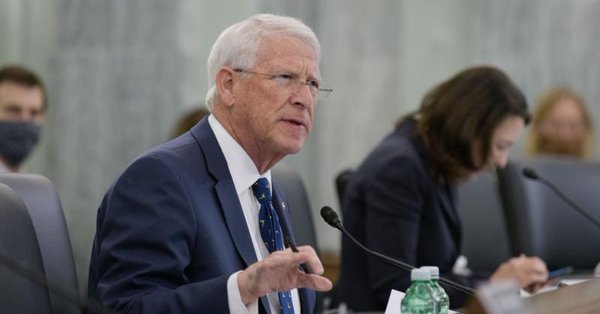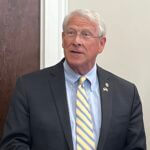Wicker: Backs aviation legislation
By Sen. Roger Wicker (R-Miss.)
Law Invests in Mississippi’s Air Travel Experience, Workforce, and Research
Air travel is getting an upgrade in Mississippi. This month, Congress passed an aviation bill that I helped negotiate. The legislation has now been signed into law, and it will benefit passengers across the nation – including in Mississippi. Through this bill, Congress has helped support our urban and rural airports, develop our aviation workforce, and strengthen our leadership in cutting-edge flight technology.
Commercial airports all over, from Tupelo to Gulfport and Columbus to Greenville, will receive funding for improvement projects. Airport investment creates a cycle of growth and develops economies statewide. These upgrades make it easier for tourists, business people, and loved ones to spend time – and money – in Mississippi.
Connecting All Passengers to Air Travel
Congress also continued two long standing efforts that meet the unique needs of smaller airports.
The Essential Air Service (EAS) and the Small Community Air Service Development (SCASDP) programs help connect small town passengers to the nation’s flight networks. The EAS program is built specifically for air carriers, enabling them to reach lower-population areas. The SCASDP provides more flexible grants. It puts the airports, carriers, and private companies in the driver’s seat by allowing them to tailor requests to the needs they see on the ground. In recent years, Mississippi airports have benefited from both programs.
A third, new provision helps growing airports sustain their progress. Under Federal Aviation Administration (FAA) rules, an airport risks losing some grant funding when it expands from a “small” to a “medium” sized hub. No one should be penalized for succeeding. This passage will make it easier for recently-promoted airports to continue their upward trajectory. The law extends their access to “small hub” grants for three years after they attain “medium hub” classification.
Developing the Next Generation of Aviation Technicians
Aviation companies have expressed concern that there may not be enough new mechanics and pilots entering the industry. Congress is helping meet that challenge.
In this law, we renewed the Aviation Workforce Development Grant Program, which helps nurture a talent pipeline for the industry. Pearl River Community College (PRCC) currently benefits from this initiative, using the funds to develop its aircraft technician academy. Through this program, PRCC equips students with the skills to inspect and repair planes – jobs that ensure the reliability and safety of air travel.
PRCC is not the only Mississippi school helping solve these workforce challenges. Delta State University is preparing the next generation of America’s commercial pilots.
Mississippi’s National Leadership in the Future of Flight
Constant innovation has always been the theme of human flight. Congress’ action recognizes the many ways Mississippi is contributing to the next phase of aviation technology.
Mississippi State University is a national leader in the development of unmanned flight machinery, and the university chairs the FAA’s Center of Excellence for Unmanned Aircraft Systems Research. It was a no-brainer for Congress to continue supporting this work, and I am glad that this law does so. Lawmakers even established a new program at the center, which will train first responders to use these systems to reach people in distress.
Federal law must catch up with our creative innovators. I authored and successfully passed a provision that requires the FAA to begin incorporating remotely-piloted aircraft into America’s flight networks. The bill also directs the FAA to create a new pathway for these unmanned aircraft systems to operate beyond the visual line of sight.
I am eager for these investments to reach our communities. Together, we can extend the benefits of air travel to more Mississippians and lift flight technology to new heights.
Note: This article is the weekly “Wicker Report,” written by Sen. Roger Wicker and provided by his office. Any opinions expressed in this article are that of the writer and not necessarily that of this publication.






